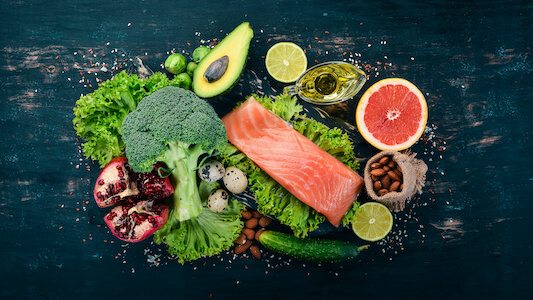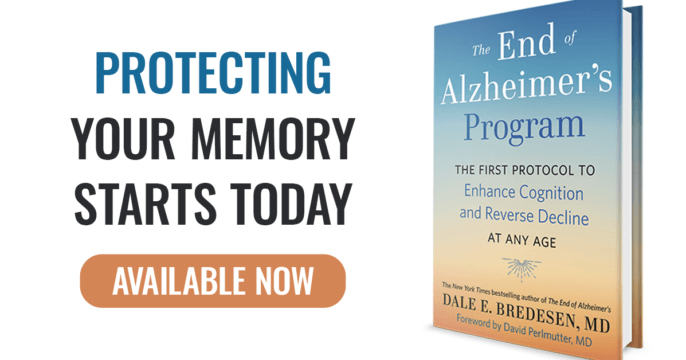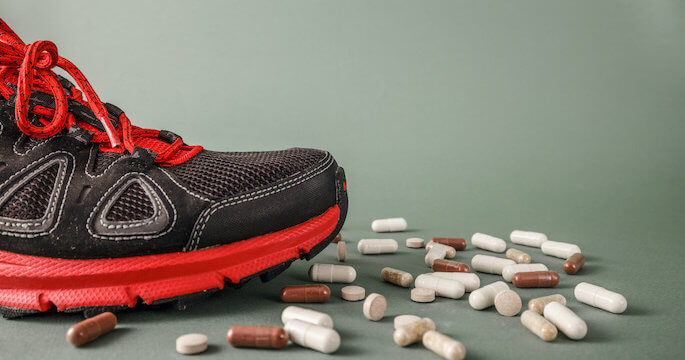From Dr. Bredesen
Chief Science Officer
October 14, 2020•From Dr. Bredesen, Nutrition
Dr. Bredesen's blog discusses how the Mediterranean diet is a definite improvement over the standard American diet for cognition, but KetoFLEX 12/3 is better. Read More »
October 8, 2020•From Dr. Bredesen
As we continue to learn more about COVID-19 and its associated virus, SARS-CoV-2, it is turning out that there are 3 distinct phases, each with its own prevention and treatment. Read More »
September 18, 2020•From Dr. Bredesen
The Real Secret to Good Health
"The Big Secret" documentary describes how current standard approaches to treating chronic illnesses obscure that they are preventable. Read More »
August 18, 2020•From Dr. Bredesen, News
The End of Alzheimer’s Program
Dr. Dale Bredesen's new book, The End of Alzheimer's Program, a how to guide to prevent and reverse cognitive decline. Read More »
July 21, 2020•From Dr. Bredesen
Exercise a Bitter Pill to Swallow?
A study just released suggested, yet again, that a pill might be developed that would offer the benefits of exercise. Read More »
June 17, 2020•From Dr. Bredesen
Our colleague, neuroradiologist Dr. Cyrus Raji, has just published a paper on the neurological effects of COVID-19, such as stroke and seizures. Occurrence after occurrence serves to remind us of the parallels between COVID-19 and Alzheimer’s disease, and serves to remind us that many of the risk factors for both diseases are part of one common, recurring theme. Read More »
May 28, 2020•From Dr. Bredesen
Lessons From Past Pandemics: Building Resilience
Will COVID-19, which we now know often includes neurological features such as loss of smell (anosmia), loss of taste (ageusia), confusion, headaches, paralysis, encephalitis, and other neurological features, also presage future neurological conditions such as Alzheimer’s or Parkinson’s? Read More »
April 21, 2020•From Dr. Bredesen
We are all working together to reduce the global burden of dementia, and COVID-19 has made it clear that our efforts are very likely to help reduce susceptibility to the next pandemic, as well. Read More »








